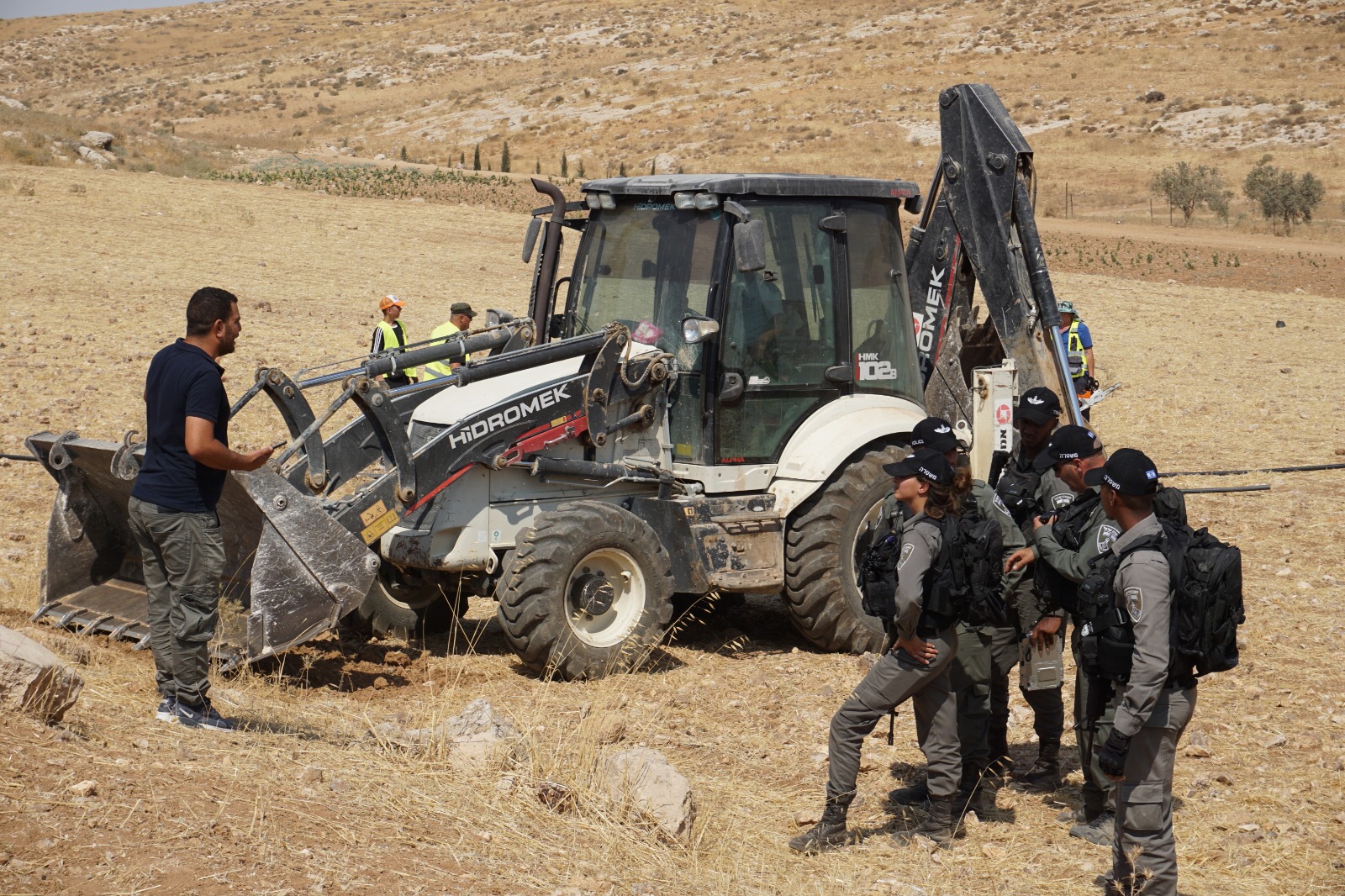Tag: Settlement
-

Israeli settlers attack Palestinians and harass internationals, IOF arrest observers
August 11 | International Solidarity Movement | Hebron, occupied Palestine Yesterday in Tel Rumeida, the afternoon before Eid, settlers attacked an elderly Palestinian couple as they walked home. International activists in the area attempted to document the abuse. The soldiers were not protecting the Palestinians. They were allowing the actions of the violent settlers. …
-

Water Series: ‘There’s no law in the world that says you can cut water from humans’
August 3 | International Solidarity Movement | South Hebron Hills, occupied Palestine This is the second of a series of reports documenting the control and devastation of water sources by Israel as a tool of oppression. Israel is escalating its war on water in the South Hebron Hills, demolishing wells, ripping out kilometres…
-

In Pictures: Wadi al-Hummus demolitions, 22 July
July 30 2019 | International Solidarity Movement | Wadi al-Hummus, occupied Palestine
